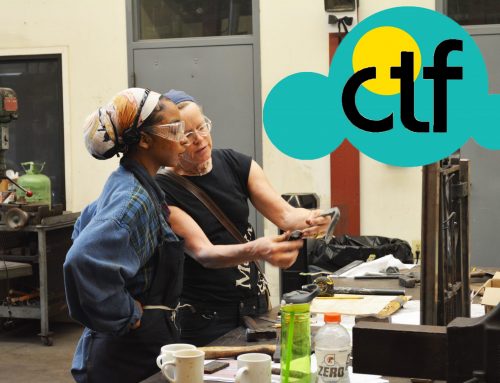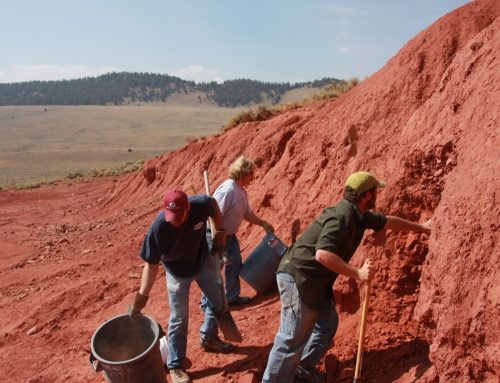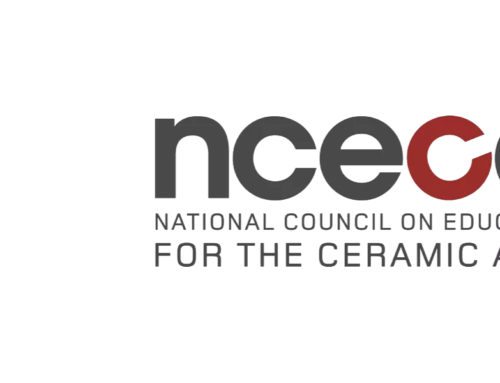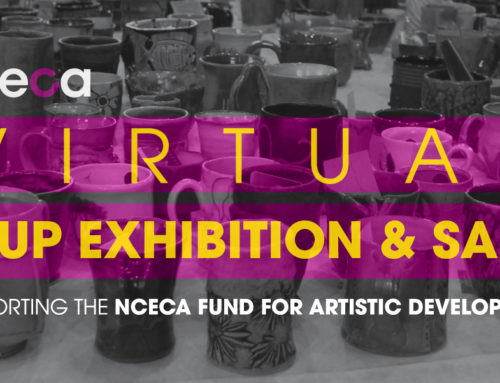The National Council on Education for the Ceramic Arts (NCECA) is committed to creating and sustaining an environment and culture free from harassment in which all people are treated with dignity, fairness, and respect.
NCECA believes that organizations serving people, the arts, teaching and learning will benefit all when they develop, implement, and share policies that address harassment in programs and the fields they serve. Initiatives like these will be most effective when they are linked to broader efforts to achieve equality, inclusion, and fairness. NCECA will be adopting a policy on harassment that will be included in all future presenter, volunteer, employment, and board service agreements.
Opening this conversation, commemorating its effects on individuals and our work cultures is courageous and necessary. Collecting and documenting experiences of workplace bias and toxicity is an important step in helping us all come to grips with understanding the nature and causes of harassment with the ultimate goals of recognizing it when it occurs, seeking justice for those adversely affected, and mitigating against its continuation within our organization and the field we serve.
One way these intentions can become actionable is to provide a conduit for sharing and opportunity for the ceramic arts within a changing world. In doing so, NCECA recognizes that some issues and experiences that have harmed individuals working within our field may be difficult to look at. Making real and meaningful change that leads to more supportive and inclusive modes of working, hearing, and seeing one another may be even more challenging. In the natural world, experiences of growth and change are often accompanied with discomfort and pain. With the involvement of engaged and caring members, NCECA will continue to look for ways to provide avenues for difficult topics and conversations like this one during our annual conference. A new email-box has been created, reports@nceca.net, which will enable members of our community to share, in confidence, reports of harassment that may occur and impact our programming and decisions as an organization.
Watch NCECA e-news and blog postings this autumn for more information about our 2019 conference program as it becomes available. It is our hope that Clay Conversations (formerly topical networking sessions) on Wednesday and a new open source programming space that will be available on Thursday and Friday of the conference in
Minneapolis will provide time for conversations on critical concerns issues including this one.







While I am pleased to read this statement, I can’t help read it with mixed emotions and wonder the real depth of your commitment at NCECA. In an earlier blog by your director of communications, she quoted Picasso which included an offensive and hurtful remark regarding people with special needs. I reached out and asked her to make a correction or a clarification which she did not do. The assumptive statement that to be differently able is bad or “less than”, flies in the face of your blog post today. I’d be curious to see how you justify the two.
Teri
Here is her post…
Posted by Cindy Bracker, Communications Director
What do you think an artist is? An imbecile who only has eyes if he’s a painter, ears if he’s a musician, or a lyre in every chamber of his heart if he’s a poet – or even, if he’s a boxer, only some muscles? Quite the contrary, he is at the same time a political being constantly alert to the horrifying, passionate or pleasing events in the world, shaping himself completely in their image.
-Pablo Picass
Hi Teri,
I’m very sorry that my quote of Picasso offended you. I do not recall receiving any email or contact form from you or i would have most certainly addressed it immediately, as I am doing now. Please note, these were not my words, it was a quote. My own words followed the quote and prefaced a speech from Richard Notkin that was presented at the 2018 conference. I don’t find anything in Picasso’s words (or my own) that even relate to or reference people with special needs. Please know that I am incredibly sensitive to such issues, though I don’t wish to go into personal detail as to why, so I’m unsure what you are reading in that statement that I am missing. I view this quote as being one that encourages people to see past the “obvious” characteristics of a person and recognize that people are more than what is on the surface. We are WHOLE BEINGS, not just the *one thing,* which is merely an attribute or skill for which we are often known.
Thank you for your remarks. “Imbecile” would be the offensive terminology (equivolant to the “R” word) and the idea that someone characterized in that manner wouldn’t have any deep value. I understand the historical context of the quote, however there is language we choose not to use anymore, and ideas we do not esspouse due to the inelegant turn of phrase, or having since realized the inaccuracy of the bigoted idea. When we open the doors for inclusion and sensitivity, we need to recognize everyone’s values. You may not have read that with any misgivings (as I am sure you wouldn’t have posted it had you). There are others who would take offense. It jumped off the page at me. This is a difficult and treacherous territory, we all need to be open to the fact that completely unintentionally we may offend.
I appreciate your follow up, and am pleased to note you didn’t ignore me but perhaps the original message was waylaid.
Sincerely,
Teri
I don’t think an apology is necessary. I found no offense in Picasso’s quote. Should Picasso be banned from the Arts for not being PC? Should we have to vet every word a person uttered?
The attitudes expressed in this response activity contribute to the issues of abuse that this post and the response to this post are seeking to address.
Just because you do not find any offense does not mean that any offense taken is rendered invalid. This is at the very root of the reports of abuse that are coming out in the community. Just because some people didn’t have any negative experience with a person doesn’t mean that person wasn’t abusive to others.
Picasso was a groundbreaking artist, but he was also a terrible and abusive person. Being the former does not excuse the latter (watch Hannah Gadsby’s Nannette for a way better explanation than I can ever hope to give here). We have our own Picassos in the ceramics field (i.e. Soldner, Voulkos). If the ceramics community is going to seriously address the issues of abuse being raised, we cannot continue to ignore bad behavior because of benefits to the field.
This doesn’t mean we “ban” anyone for “not being PC.” It means that we do not ignore abuse.
I’m actually extremely skeptical that the ceramics community will be able to meaningfully address the issues of abuse that are being brought to light, mainly because I’ve seen so many people within the community express the attitudes in this response. But I hope I am proven wrong.
Except there was no abuse here! We live in an community and we need to learn to get along and not make issues when none was intended. I was offended by the post, I felt it was social media bullying! I have deep issues with bullying, this could go on forever.
like I posted before, I am skeptical that the ceramics community will be able to meaningfully address the issues of abuse that are being brought to light.
The response post brought to light that there are people who found a post by a representative of NCECA to be hurtful and offensive. When the representative reached out to get a better understanding, the responder offered a detailed explanation of their position.
Somehow, you read this thoughtful exchange as a case of bullying, and are implying that any kind of response to any suggestions of offense that you do not believe in is somehow a slippery slope to rampant oppression?
The ceramics field has a long history of those with power and privilege getting a pass for abusing that power and privilege; at the very least the have gotten a pass on not needing to recognize the under represented and under privileged. And this attitude that anyone who brings up that something is potentially offensive cannot be valid and should not even be discussed is why I am skeptical that the ceramics community will be able to meaningfully address the issues that are being brought to light. How can it when there are those within it who do not recognize that the issues of the under represented/under privileged as being even potentially valid, and who find the act of bringing up potential issues as offensive.
No Joe, I still don’t think this public forum was appropriate to chastise someone. And apparently my idea of trying to get along in a community and not probe for slights is being overlooked and invalidated by your anger. You have to really dig deep to take offence of a quote because it uses the word “imbecile”.
I am very new to the ceramic community. I am just learning at a CC. I just opened my email to a positive message for the executive director and it was used as forum to spew hate and criticize. You have opened my eyes to the hostility that exists against the organization. I am a woman and a minority and I have not felt under respresented or under privileged, although I don’t look for slights.
Again, I do feel my opinion is not being cosidered or recognized. Try kindness. It’s a better world to live in.
Thank you for providing evidence to back up my skepticism
Your welcome. Thank you for proving my point that you only value your own opinion! For a community to be healthy everyone needs to be open to ideas. True open mindedness means everyone’s opinion is important.
im·be·cile
noun/informal
1. 1.
a stupid person.
adjective
1. 1.
stupid; idiotic.
“try not to make imbecile remarks”
It seems far too many folks get offended when no offense is intended or even considered. Getting upset over a quote from decades ago because a word used MAY now be considered offensive is, IMO, a huge waste of energy. It reminds me of those folks who watch old movies and get offended because of the language or the portrayal of women, sex, race, etc. Movies, and society in the 1930’s, was different and the
films reflect that. Getting upset doesn’t change those facts.
I rather doubt Cindy deliberately sought out a quote knowing SOMEONE somewhere would be offended. I know her and know that isn’t the way she thinks or acts. Whenever I find myself feeling “off” about a comment or a word use, I immediately stop and assess WHY I think that way. Am I reacting in a knee jerk manner or is there a legitimate issue?
I think, in the art world as well as our society, we have much greater issues at hand to be concerned about than a quote from a noted artist of the past.
As Bill Maher says: “…it is exhausting to always have to appease the professionally offended. I just wish people would understand that you need to give a rest to crimes against (wokeness) until Donald Trump is gone. Because if they make this next election about pronouns and bathrooms, we’re going to lose it again.
I’m constantly bewildered at why some people are offended that other people are offended. Just because you are not offended by something, or had no intention of offending someone else does not mean that no one anywhere could be offended. People have different experiences and backgrounds. A term that one person thinks is mundane and harmless might have been used by others in ways that were harmful and traumatic to others. And until you ask “why” you are just projecting assumptions and stereotypes onto that person and making any decisions on if their arguments are right or not off of pure speculation.
If someone does something that offended another, and it is not the intention of the person doing that thing to offend, then it would seem that a reasonable action to take (which is what happened here, kudos NCECA) is to reach out and understand why that person is offended. And if there is no intention to offend, then you learn what the other found offensive and correct it so that you are no longer offending that person.
But these reactions that imply that others have no justification to be offended actively get in the way of becoming a better community. We do not work to understand why another person is offended and we do not improve the ways we communicate in order to clearly not offend when no offense is intended. Regardless of what a person might have been offended by in the first place, I think it’s justifiable that they would be offended at being brushed off, belittled, and/or ignored when they tried to discuss it.
It is this reaction, the attempt to shutdown or invalidate any discussion of even potentially offensive actions that I’ve run into repeatedly within the ceramics field that makes me extremely skeptical that anything will actually change, or even get discussed in a meaningful way. Just look at the comments in this blog post. When a person tried to have a meaningful discussion, the majority of responses that they got were saying that their views were not justified and actively tried to cut off discussion. Based on this, I am not convinced that there is a quorum of the NCECA community that wants to have these discussions. I would love to be proven wrong, but all the evidence I’ve seen so far do not make me feel hopeful.
NCECA developed and shared this statement about harassment motivated by a variety of concerns. Social media and online communication have increased access to personal testimonies on the effects of harassment on individuals and shifted levels of cultural awareness. As an organization, we include members and followers who come to ceramic art from a variety of experiences and interests. While collectively we may represent and envision ourselves as a community, we are far from homogenous.
While women creators have been marginalized and underrepresented in many sectors of the art-world, we are beyond fortunate that women have played pivotal roles in the evolution of ceramic art of the 20th and 21st centuries. NCECA has also benefitted from a legacy of women leaders on its board, staff, and membership. And yet, we are part of a broader culture in which some have taken for granted that power, racism, and in some cases, abuses have occurred and been tolerated.
In crafting and sharing this statement, NCECA believes that while words have the power to communicate intent, belief, and commitment, we have no illusions that text on a blog page has the power to affect change. Change is hard: it often takes time, persistence, individual, and group process. By sharing this statement of belief, NCECA acknowledges that harassment is real and that it affects all of us, within our field and the broader culture within which we work. NCECA also shares this statement because it serves as a guide for ourselves as we operate today and work to sustain an organization that evolves and remains relevant on behalf of our community for the future. In order to do so, we need to move a little closer to the edge of comfort zones when sharing and responding to critical issues such as this one.
One reason that harassment is a particularly challenging issue to confront is that context, values, tolerances, and norms have shifted from generation to generation. Whether it be Thomas Jefferson, Pablo Picasso, Chuck Close, or Mother Teresa, revelations about the fallibility and flaws of historically admired individuals can sometimes be hard to square with current context. To be human is to be imperfect. Isolated examples of honor misplaced or intent misunderstood, however, should not dissuade us from striving to build more just societies for today and the future.
In the natural world, change often begins at the perimeter of communities. In ecology, the concept known as edge effect is used to describe how greater diversity of life occurs in the regions where adjacent ecosystems overlap (land/water, forest/grassland). Animals traveling between communities can create travel lanes along borders, which in turn increases light that reaches plants along the lanes to promote primary production. As more light reaches plants, greater numbers and sizes can thrive. Increased primary production within plant species, can in turn increase numbers of herbivorous insects, followed by nesting birds and further on to affect other trophic levels of the ecosystem. The edges of communities can also be more immediately at risk for harm caused by unbridled development, human made toxins, and invasive species. While our edges can be the first to foster growth and change, we must also be aware of their need for vigilance and protection.
The comment strand activated by this post is evidence that there are many of you who feel strongly about NCECA and these issues. Affecting change will be a work in progress, in need of sustained effort. We choose to remain optimistic about our field, its future, and the people working within and on behalf of it.